Ragu - the Italian Meat Sauce

What is meant by ragù?
The origin of the word is French (ragôut) and indicates preparations that are quite different from each other, but have in common the use of meat cooked in a sauce usually used to flavour pasta.
What does ragôut mean?
This French term, meaning ‘to whet the appetite’, generically indicates preparations of meat, fish or vegetables cut into pieces, cooked for a relatively long time much like a ‘stew’.The cooking sauce is often made of aromatic vegetables with a reduction of wine and broth.
How many types of ragù are there in Italy?
Basically, there are two types of ragù: one made with minced or finely chopped meat, one made by slowly cooking a piece of whole meat (to which other elements such as sausages can be added). There are also variations defined as ‘al ragù’ that are famous in the southern regions of Italy, that are made with a slice of meat with aromatic herbs and spices that is then cooked slowly in the sauce itself. The first type is from Emilia (the Bolognese par of excellence) and the second is from other regions (Sardinia, Bari)
Ragù alla Bolognese (the most famous in Italy)
This is the sauce usually used to season tagliatelle and, almost always eliminating pork but increasing the amount of bacon for lasagne alla Bolognese. A Romagna variant includes the addition of chicken livers, diced ham and béchamel sauce.
Ingredients and preparation of Ragù alla Bolognese
- Beef (rump of shoulder)
- Pork meat (leg, rolled bacon or fatty raw ham)
- Onion
- Carrot
- Celery
- Tomato puree
- Red wine
- Meat broth
- Milk
- Extra virgin olive oil
- Salt
- Pepper
The meat has to be minced coarsely and mixed with the chopped bacon. Then fry the finely chopped vegetables in olive oil, once browned, add first the bacon and then the minced meat. Season with salt and pepper and allow to brown. Wet with the red wine and once evaporated, add the tomato sauce and a ladle of hot stock. Continue cooking over a low heat and after about an hour add the boiling milk and cook until absorbed.
Wine pairing Ragù alla Bolognese
In ragù alla Bolognese there is a certain succulence, unctuousness and fatness, mainly due to the meat base, savouriness and pseudo-sweetness, especially when it accompanies pasta dishes, and an unmistakable aromaticity, a result of the mix of the various ingredients.
Lambrusco is therefore recommended, or if stronger sensations are desired,
We remain in the same region with Sangiovese di Romagna recommended, with a softer, dry and vigorous flavor, that is capable of holding its own against the full-bodied meat sauce.
What does ragôut mean?
The origin of the word is French (ragôut) and indicates preparations that are quite different from each other, but have in common the use of meat cooked in a sauce usually used to flavour pasta, especially fresh pastas such as fresh amazing tagliatelle or fettuccine.
What does ragôut mean?
This French term, meaning ‘to whet the appetite’, generically indicates preparations of meat, fish or vegetables cut into pieces, cooked for a relatively long time much like a ‘stew’. The cooking sauce is often made of aromatic vegetables with a reduction of wine and broth.
How many types of ragù are there in Italy?
Basically, there are two types of ragù: one made with minced or finely chopped meat, one made by slowly cooking a piece of whole meat (to which other elements such as sausages can be added). There are also variations defined as ‘al ragù’ that are famous in the southern regions of Italy, that are made with a slice of meat with aromatic herbs and spices that is then cooked slowly in the sauce itself. The first type is from Emilia (the Bolognese par of excellence) and the second is from other regions (Sardinia, Bari)
Anpother popular ragù is of course the vegetarian version, often referred to as ragù matto (crazy), or ragù finto (fake).
Ragù alla Bolognese (the most famous in Italy)
This is the sauce usually used to season tagliatelle and, almost always eliminating pork but increasing the amount of bacon for lasagne alla Bolognese. A Romagna variant includes the addition of chicken livers, diced ham and béchamel sauce.
Ingredients and preparation of Ragù alla Bolognese
- Beef (rump of shoulder)
- Pork meat (leg, rolled bacon or fatty raw ham)
- Onion
- Carrot
- Celery
- Tomato puree
- Red wine
- Meat broth
- Milk
- Extra virgin olive oil
- Salt
- Pepper
The meat has to be minced coarsely and mixed with the chopped bacon. Then fry the finely chopped vegetables in olive oil, once browned, add first the bacon and then the minced meat. Season with salt and pepper and allow to brown. Wet with the red wine and once evaporated, add the tomato sauce and a ladle of hot stock. Continue cooking over a low heat and after about an hour add the boiling milk and cook until absorbed. It takes time, but is easy to make and worth the wait with the perfect recipe for Ragù.
Wine pairing Ragù alla Bolognese
In ragù alla Bolognese there is a certain succulence, unctuousness and fatness, mainly due to the meat base, savouriness and pseudo-sweetness, especially when it accompanies pasta dishes, and an unmistakable aromaticity, a result of the mix of the various ingredients.
Lambrusco is therefore recommended, or if stronger sensations are desired, we remain in the same region with Sangiovese di Romagna recommended, with a softer, dry and vigorous flavor, that is capable of holding its own against the full-bodied meat sauce.
